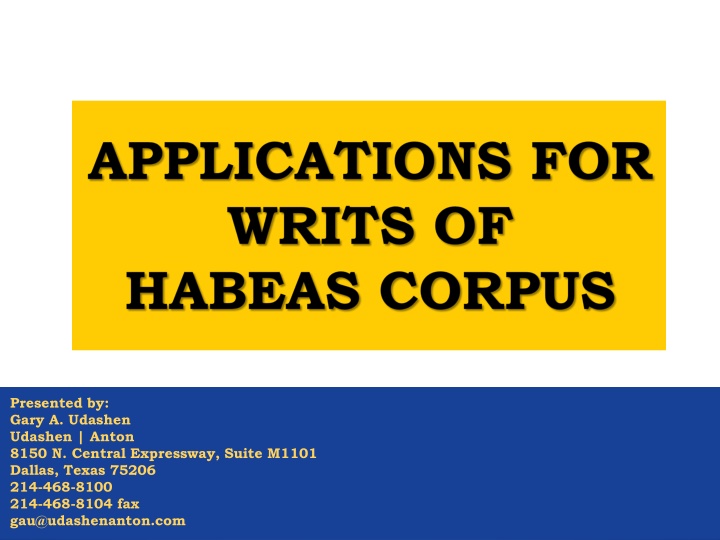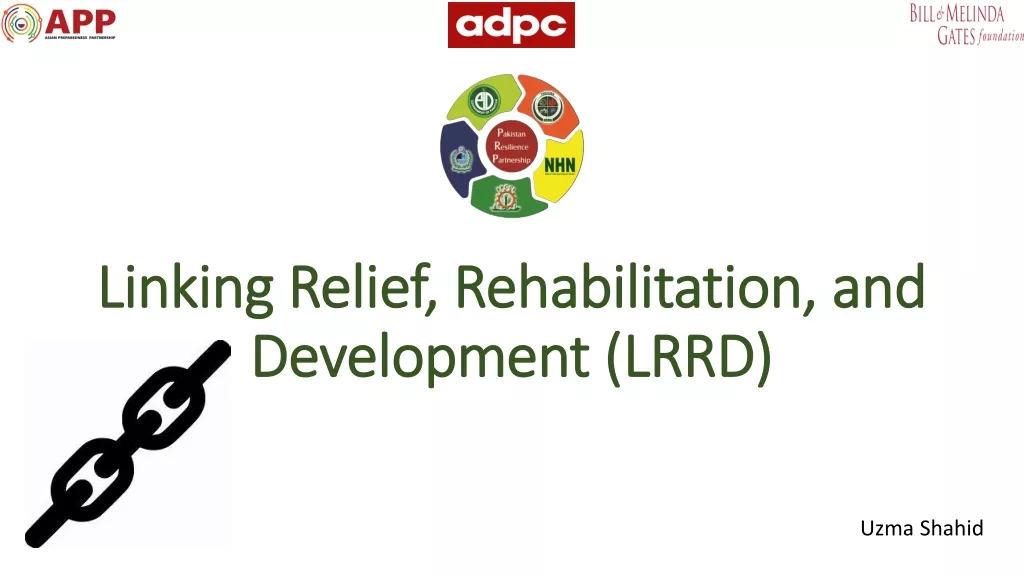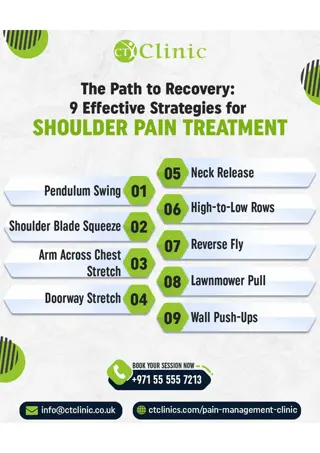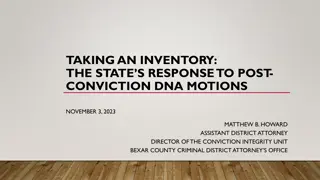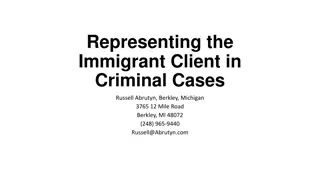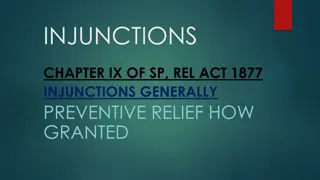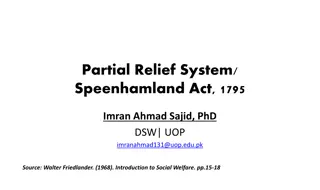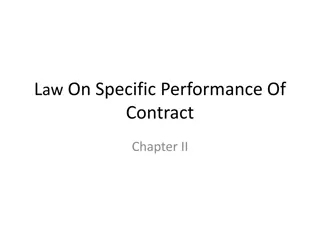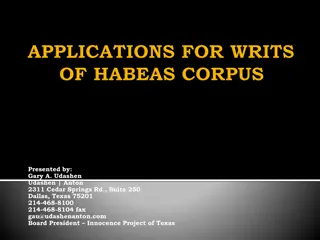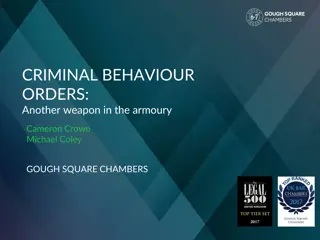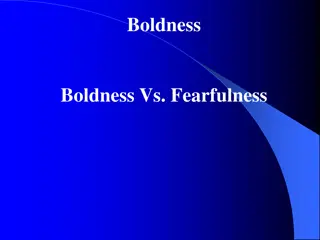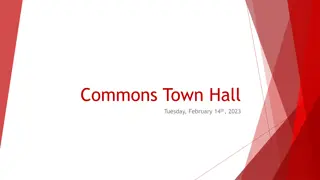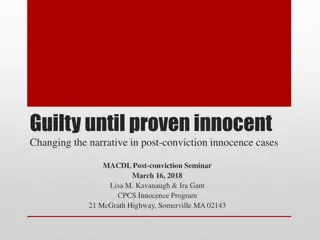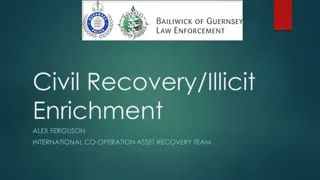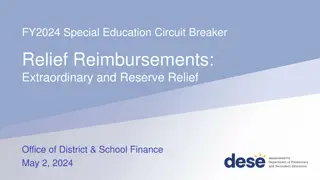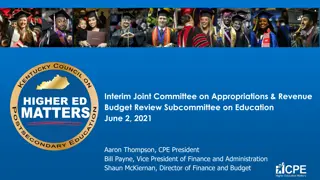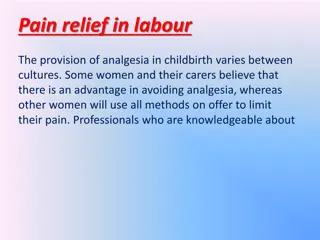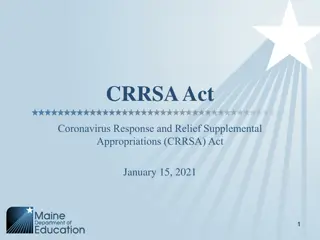Legal Process for Seeking Relief from Final Felony Conviction
Legal process for seeking relief from a final felony conviction involves the filing of an application, the state's response, and a district court determining unresolved facts regarding the legality of the applicant's confinement. Affidavits, depositions, and hearings may be conducted to resolve these issues, leading to a decision by the Court of Criminal Appeals on granting or denying relief.
Download Presentation

Please find below an Image/Link to download the presentation.
The content on the website is provided AS IS for your information and personal use only. It may not be sold, licensed, or shared on other websites without obtaining consent from the author.If you encounter any issues during the download, it is possible that the publisher has removed the file from their server.
You are allowed to download the files provided on this website for personal or commercial use, subject to the condition that they are used lawfully. All files are the property of their respective owners.
The content on the website is provided AS IS for your information and personal use only. It may not be sold, licensed, or shared on other websites without obtaining consent from the author.
E N D
Presentation Transcript
Presented by: Gary A. Udashen Udashen | Anton 8150 N. Central Expressway, Suite M1101 Dallas, Texas 75206 214-468-8100 214-468-8104 fax gau@udashenanton.com
Does the Application: Seek Relief From Final Felony Conviction (not probation) Raise Constitutional or Fundamental Errors Allege Confinement or Collateral Consequences Plead Facts, Which, If True, Would Entitle Applicant to Relief
State Has 30 Days To Answer Within 20 Days of Expiration of Time For State s Answer District Court Shall: 1. Decide Whether There Are Controverted, Previously Unresolved Facts Material To Legality of Applicant s Confinement 2. If Yes, Enter An Order Designating Issues To Be Resolved
The Court finds there are controverted, previously unresolved facts material to the legality of applicant s confinement, to wit, whether the applicant received ineffective assistance of counsel. These issues shall be resolved by submission of affidavits and an evidentiary hearing.
Affidavits Depositions Interrogatories Forensic Testing Hearings Personal Recollection
Court Makes This Finding Clerk Sends Application, Answer, and Court s Order To Court of Criminal Appeals
District Court Issues Findings of Fact and Conclusions of Law Transmitted to Court of Criminal Appeals Court of Criminal Appeals Grants or Denies Relief Court of Criminal Appeals Not Bound By District Court s Findings and Conclusions Court Will Ordinarily Follow the Findings and Conclusions if Supported By Record
Issue Could Have Been Raised on Direct Appeal Issue Was Decided On Direct Appeal (exception on ineffective assistance) Subsequent Writs 4th Amendment Violation Not Cognizable Insufficiency of Evidence Not Cognizable (no evidence is cognizable)
QUESTIONS: 1. Are there factual questions to be resolved? 2. Does resolution of the factual questions require credibility determinations? 3. Would hearing the witness testify aid the court in making credibility assessment?
SHOULD LAWYER ALWAYS WIN? Gallego v. U.S., 174 F.3d 1196, 1198-99 (11th Cir. 1999): We cannot adopt a per se credit counsel in case of conflict rule where the defendant is going to lose every time. Judge should assess credibility of the lawyer and client testimony based on their
Ineffective Assistance of Counsel Suppression of Exculpatory Evidence New Evidence Establishing Actual Innocence New Science False Testimony
Ex Parte Elizondo, 947 S.W.2d 202 (Tex. Crim. App. 1996) Bare claims of actual innocence are cognizable on a writ application. Applicant must show that newly discovered evidence of actual innocence unquestionably established innocence.
Habeas Court must examine the new evidence in light of the evidence presented at trial. In reviewing court must believe that no rational juror convicted in light of the newly discovered evidence. order to grant relief, the would have
Establishing a bare claim of actual innocence is a Herculean task. Ex Parte Brown, 205 S.W.3d 538 (Tex. Crim. App. 2006)
Ex Parte Thompson, 153 S.W.3d 416 (Tex. Crim. App. 2005) Complainant, provided affidavit and testimony stating that sexual abuse never occurred. daughter of Applicant,
Ex Parte Calderon, 309 S.W.3d 64 (Tex. Crim. App. 2010) Evidence of innocence must be newly discovered or newly available.
Cacy convicted of an arson murder based on false lab report that claimed there was gasoline on her uncle s clothing. Trial Court finds that Cacy is actually innocent.
Kristie Mayhugh Elizabeth Ramirez Cassandra Rivera Anna Vasquez Ex parte Mayhugh, 512 S.W.3d 285 (Tex. Crim. App. 2016) Found actually innocent by Court of Criminal Appeals on November 23, 2016
Two young girls testified that the four women sexually assaulted them One of the girls, now an adult, recants accusations Other girl does not recant Recantation supported by expert testimony State s medical evidence, that one of the girls had physical signs of abuse, is recanted by doctor based on new science
We conclude that now, with this clear and convincing evidence establishing innocence combined with the lack of reliable forensic opinion testimony corroborating the fantastical allegations in this case, no rational juror could find any of the four Applicants guilty of any of the charges beyond a reasonable doubt. Court of Criminal Appeals, November 23, 2016
. Defendant found actually innocent based on newly discovered evidence, including evolution of the body of science of bitemark comparisons, undisclosed Brady material and post- conviction DNA testing of evidence excluding defendant as contributor
Defendant found actually innocent of murder based on DNA identifying the true perpetrator. True perpetrator confessed. Multiple eyewitnesses erroneously identified Grant as person seen stabbing victim.
Defendants found actually innocent of delivery of controlled substance. Only evidence against the Mallet brothers was the testimony of disgraced Houston narcotics detective Gerald Goines.
Online solicitation of a minor statute declared unconstitutional in Ex Parte Lo, 424 S.W.3d 10 (Tex. Crim. App. 2013) Writs granted under Loare not actual innocence findings. Ex Parte Fournier, 473 S.W.3d 789 (Tex. Crim. App. 2015) Fournier actually engaged in the conduct, so no new evidence of innocence
The term actual innocence only applies in circumstances where the accused did not actually commit the charged offense or any possible lesser included offense. Subsequent lab testing on drug case showing no drugs does not prove actual innocence.
Defendant actually innocent of duty to register as a sex offender. Ex Parte Harbin, 297 S.W.3d 283 (Tex. Crim. App. 2009)
Strickland v. Washington, 466 U.S. 668 (1984), test requires Applicant to show: 1. deficient. Requires showing that counsel made errors so serious that counsel was not functioning as the counsel guaranteed by the Sixth Amendment. 2. The deficient performance prejudiced the defendant. Counsel s performance was
Must show that but for counsels errors defendant would not have entered a guilty plea. Hill v. Lockhart, 474 U.S. 52 (1985) Failure to inform client of plea offer found ineffective. Ex Parte Lemke, 13 S.W.3d 791 (Tex. Crim. App. 2000)
Counsels strategic choices made after less than complete investigation are considered reasonable, on claim of ineffective assistance, precisely to the extent that reasonable professional judgments support limitations on investigation. Wiggins v. Smith, 539 U.S. 510 (2003)
Failure of trial counsel to investigate information that someone else committed the crime is ineffective. Ex Parte Amezquita, 223 S.W.3d 363 (Tex. Crim. App. 2006)
Retained counsel performed deficiently in limiting, for economic reasons, his investigation of medical evidence before advising client to plead guilty. Ex Parte Briggs, 187 S.W.3d 458 (Tex. Crim. App. 2005)
Failure to request limiting instruction. Ex Parte Varelas, 45 S.W.3d 627 (Tex. Crim. App. 2001) Failure to file application for probation. Ex Parte Welch, 981 S.W.2d 183 (Tex. Crim. App. 1998) Failure to request accomplice witness instruction when case based entirely on accomplice testimony. Ex Parte Zepeda, 819 S.W.2d 874 (Tex. Crim. App. 1991)
Ineffective Assistance of Counsel may (should) be raised for first time on a writ. Ex Parte Torres, 943 S.W.2d 469 (Tex. Crim. App. 1997). Trial record is rarely sufficient to show ineffective assistance.
Record must show why counsel took the actions that constitute ineffective assistance. Thompson v. State, 9 S.W.3d 808 (Tex. Crim. App. 1999). Trial counsel must provide affidavit or testimony.
We now hold that the suppression by the prosecution of evidence favorable to an accused upon request violates due process where the evidence is material either to guilt or to punishment, irrespective of the good faith or bad faith of the prosecution. Brady v. Maryland, 373 U.S. 83 (1963)
The prosecution withheld or suppressed evidence. The evidence was favorable to the defense. The evidence was material to either guilt or punishment.
Evidence qualifies as material when there is any reasonable likelihood it could have affected the judgment of the jury. To prevail on a Brady claim, the applicant need not show that he more likely than not would have been acquitted had the new evidence been admitted. He must show only that the new evidence is sufficient to undermineconfidence in the verdict. Wearry v. Cain, 577 U.S. 385, 392 (2016)
The State has an affirmative duty to disclose evidence favorable and material to a defendant s guilt or punishment under the Due Process Clause of the Fourteenth Amendment. This duty attaches with or without a request for the evidence. When unsure of whether to disclose the evidence, the prosecutor should submit the evidence to the trial judge for his consideration. Thomas v. State, 841 S.W.2d 399, 407 (Tex. Crim. App. 1992)
BecauseBrady was aimed at ensuring that an accused receives a fair trial rather than punishing the prosecutor for failing to disclose evidence, the prosecution s obligation to disclose is not measured by the moral culpability, or the willfulness, of the prosecutor. In Brady cases the good or bad faith of the State is irrelevant for due process purposes. favorable Thomas v. State
Prosecutor denied having any exculpatory evidence Exculpatory evidence suppressed: Eyewitness (Walker) who said Thomas was not in location where shooting occurred. Prosecutor later testified, I would have brought (Walker s testimony) to the court s attention had I thought it would be exculpatory in any manner. Thomas v. State
Because we agree that the credibility of the State s only eyewitness, Anita Hanson, was a crucial issue in applicant s trial, we conclude that the State had constitutional duty Maryland to disclose material evidence that impeached her testimony. an affirmative Brady under v. Ex Parte Richardson, 70 S.W.3d 865, 867 (Tex. Crim. App. 2002)
Previous statement from eyewitness that he could not identify the perpetrator is exculpatory evidence when eyewitness identifies defendant in court. Smith v. Cain, 565 U.S. 73 (2012)
The scenarios to which Brady applies involve the discovery after trial of information which had been known to the prosecution but unknown to the defense. Pena v. State, 353 S.W.3d 798 (Tex. Crim. App. 2011)
Knowledge of government agents, such as police officers, of exculpatory evidence is imputed to the prosecution. Prosecutor has a duty to learn of any favorable evidence known to the others acting in the government s behalf, including the police. Kyles v. Whitley, 514 U.S. 419, 437 (1995)
Opening files of old convictions revealed many cases with exculpatory evidence: State failed to disclose two police reports that identified two other possible suspects. Ex Parte Miles, 359 S.W.3d 647 (Tex. Crim. App. 2012) State withheld photograph and police report which supported defendant s defense of misidentification. Ex Parte Wyatt, 2012 WL 1647004 (Tex. Crim. App. May 9, 2012)
When reliability of a given witness may well be determinative of guilt or innocence, nondisclosure of immunity deal violates due process. Napue v. Illinois, 360 U.S. 264 (1959) Supreme Court has never limited a Brady violation to cases demonstrate that the state and the witness have reached a bona fide, enforceable deal. where the facts LaCaze v. Warden, 645 F.3d 728, 735 (5th Cir. 2010)
Brady applies to agreements which are merely implied, suggested, insinuated or inferred. Question is whether there exists some understanding for leniency. It understanding is consummated by a wink, a nod and a handshake, or by a signed and notarized formal document ceremoniously impressed with a wax seal. A deal is a deal. makes no difference whether the Duggan v. State, 778 S.W.2d 465, 468 (Tex. Crim. App. 1989)
Stanley Mozee and Dennis Allen Writ Relief Granted January 10, 2018. Ex Parte Mozee, 2018 WL 345057 (Tex. Crim. App. 2018), Ex Parte Allen, 2018 WL 344332 (Tex. Crim. App. 2018) Mozee and Allen convicted largely on the basis of jailhouse informants. Informants testify at trial that they had no deal with state, had not asked for a deal and did not expect a deal. Letters to prosecutor found in District Attorney s file from informants, written prior to trial, asking when the prosecutor was going to follow through with the deals he had promised them.
State failed to disclose that, contrary to the prosecution s assertions at trial, Brown had twice sought a deal to reduce his existing sentence in exchange for testifying against Wearry. The police had told Brown that they would talk to the D.A. if he told the truth.
The privilege derived from the work-product doctrine absolute, and the duty to reveal material exculpatory evidence as dictated by Brady overrides the work-product privilege. is not Ex Parte Miles, 359 S.W.3d 647, 670 (Tex. Crim. App. 2012)
